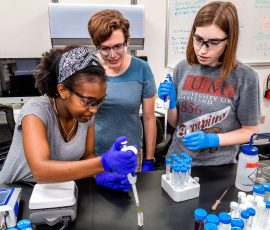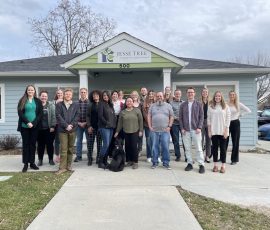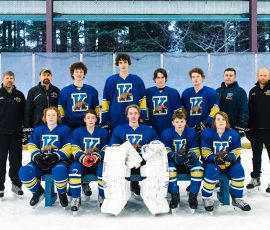As one of the program directors for the M.J. Murdock Charitable Trust, I have the honor each day of working with some of the most inspiring nonprofits in the Pacific Northwest. Their missions are as diverse and verdant as the funding region we serve. At the Trust, we often start building relationships with these nonprofits before they even submit an application. And, if awarded, that relationship continues throughout the lifecycle of the grant with regular touch points of reporting along the way.

Through a series of reports, we program directors learn about the success of a recent hire, the impact of expanding programming, the progress (or delay) of a capital project, and benchmarks reached in fundraising campaigns. These reports are a critical part of the Trust’s grants administration process and are explained well in one of our key resource documents.
We learn a lot from the progress and conditions met reports, but there is another required document that we look forward to receiving: the final report. For this last step of the journey, we give our grantees approximately 12 months (after all awarded funds have been expended), to reflect back on the project, and then to share with us the impact their work has made.
Some of our grantees are surprised to learn that the Trust gives them a year to complete this last step of the grant lifecycle. But the timeframe is intentional. As a funder, the Trust finds value in letting the dust settle a bit before expecting our grantees to thoughtfully articulate critical information. We ask them to reflect on many outcomes and evaluate the impact of the project on the organization’s mission and lessons learned. Based on the high quality of final reports we receive each month, that time of reflection seems to make a difference.
The final report serves as a documentation of a program’s success, but it also provides critical feedback for all those involved. The only way the Trust can refine our grant-making process and better serve other nonprofits in the future is to understand what worked (and what did not work) in the projects we fund. That information helps us formulate best practices and avoid future pitfalls. This learning is not confined to one individual. While each grantee works primarily with one program director, every member of our grants team has access to our final reports. The feedback one grantee provides in their final report feeds and educates every member of our grants team, further amplifying their work and thoughtful reflection.
What happens once the final report is reviewed and approved? Well, for practical purposes it means the grant is officially completed and the file can now be closed. Yet it does much more than that. The information shared in these reports leaves a lasting impact. For example, I recently worked with a nonprofit that was struggling with the cost and design implications of including an elevator in its planned renovation. I recalled a final report from a past Trust grantee who had completed a similar renovation. They had faced the same challenge and we offered to introduce the two organizations. This is just a natural bi-product of a final report that made a lasting impression.
Whether you are a current Trust grantee or a prospective one, know that the practice of careful reflection is foundation for us. When it comes time to prepare your final report, pause and step back, tell your story and describe your journey down the successful (and undoubtedly bumpy) road to completing your project. And, perhaps even more importantly, tell us about the ongoing impact that project continues to have on your mission. Rest assured, your reflection will inform the work we do here at the Trust on behalf of the common good.
Lorin S. Dunlop is a program director at the M.J. Murdock Charitable Trust.








